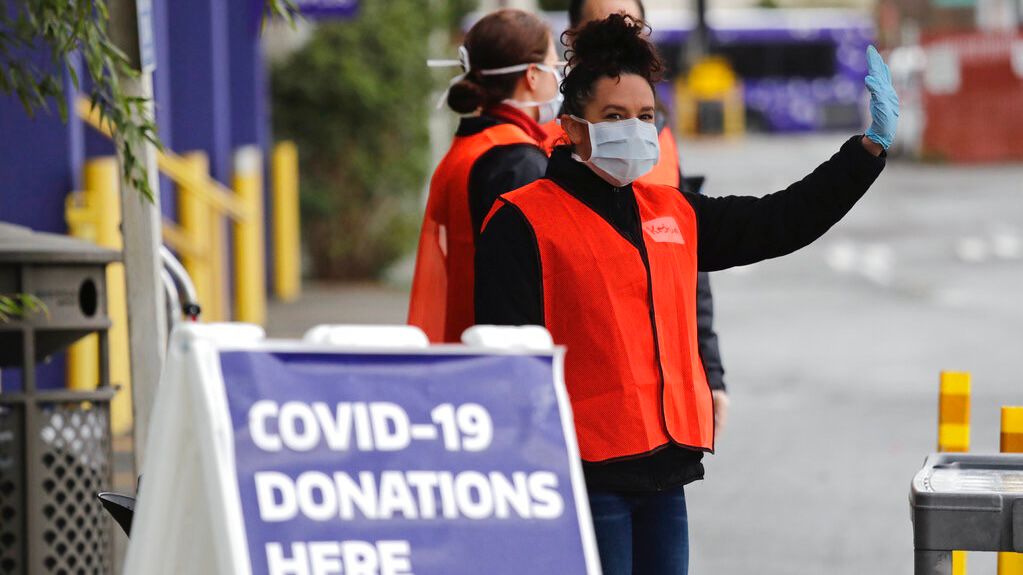Four years after the World Health Organization declared COVID-19 a pandemic, sparking U.S. lawmakers to deliver over $4 trillion of aid to Americans, congressional leaders introduced legislation on Tuesday to address systemic pandemic fraud. The Fraud Prevention and Recovery Act is intended to crack down on widespread theft perpetrated across a variety of government programs.
“While the initial pandemic legislation passed in 2020 was a vital part of the response to combating COVID, there is no question that the prior lack of investment in government administration technology, the crush of demand and the removal of several basic anti-fraud safeguards at the onset of the pandemic led the Biden administration to inherit historical levels of fraud,” said Gene Sperling, a senior advisor to President Biden, on Tuesday during an event outlining the proposed bill.
He said fraud was especially rampant in three of the earliest pandemic relief efforts: the paycheck protection program that provided small businesses with funds to pay up to eight weeks of payroll costs and benefits; the economic injury disaster loan program that provided small business loans; and the pandemic unemployment assistance program that provided up to 39 weeks of benefits to people who lost their jobs.
All three programs were part of the Coronavirus Aid, Relief and Economic Security Act of 2020 that President Donald Trump signed in March 2020, weeks after the WHO declared COVID-19 a global pandemic. The nonprofit, nonpartisan Committee for a Responsible Federal Budget estimates the CARES Act cost taxpayers $1.9 trillion.
While most of the funds went to individuals and businesses who genuinely needed financial assistance, billions were stolen, much of it by international criminal syndicates, Sperling said.
“They took advantage of a disaster for their own financial gain,” Sen. Gary Peters, D-Mich., said Tuesday.
Peters is part of a trio of lawmakers, including Sen. Dick Durbin, D-Ill., and Sen. Ron Wyden, D-Ore., who introduced the Fraud Prevention and Recovery Act. The senators said bad actors exploited the health crisis to siphon pandemic relief from small businesses and families.
To help recoup stolen pandemic aid, the wide-ranging bill would empower law enforcement to prosecute and recover illicit funds from crime syndicates who “engaged in major or sophisticated fraud” worth hundreds of thousands or even millions of dollars, according to a White House fact sheet.
It would also increase the amount of money the federal government can recoup in administrative costs for pursuing pandemic fraudsters from $150,000 to $1 million and provide $250 million to the Small Business Administration and Department of Labor to help identify and recover fraudulent payments.
In addition, the legislation would provide $300 million to the COVID-19 Fraud Strike Force — a tripling of funds for the federal inter-agency program that prosecutes pandemic fraud causes.
The bill’s introduction comes the same day the Department of Justice said it has charged 3,500 defendants, filed 400 civil lawsuits and seized $1.4 billion in stolen COVID relief funds as part of its three-year-old COVID-19 fraud enforcement task force.
“Since that time, the COVID-19 public health emergency has ended, but the Justice Department’s work to identify and prosecute those who stole pandemic relief funds is far from over,” U.S. Attorney General Merrick Garland said.
He said the department supports the proposed legislation, which would extend the statute of limitations to 10 years for all COVID-19 fraud-related offenses.
Bill co-author. Peters said every dollar that is spent on the task force leads to at least $10 in savings. He estimates another of the bill’s proposals could save $13 billion by enhancing the Treasury Department’s service for detecting improper payments.
On Tuesday, co-author Wyden championed his work with Sen. Mike Crapo, R-Idaho, on a new framework to prevent unemployment fraud introduced in February.
“We are working in a bipartisan way,” Wyden said.



